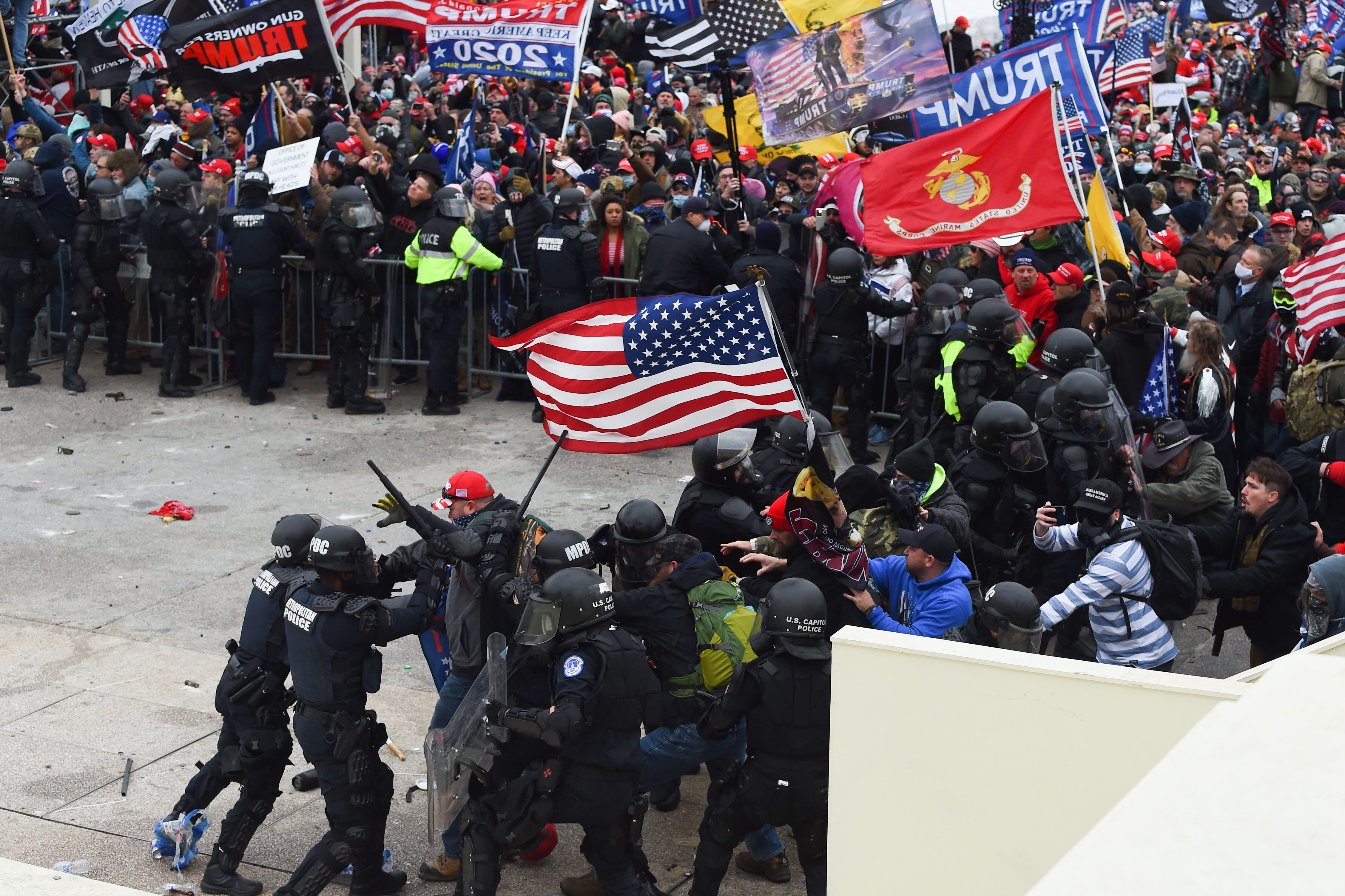In the days following the Jan. 6 insurrection, I was interviewed and published in print, digital, and televised media making the point that those in our military who endorsed or participated in the insurrection had violated their oath to the Constitution and should be managed out of our armed forces.
I did not believe that was a particularly controversial position to take. I was wrong.
I was immediately attacked by the right-wing troll structure. They attacked me on my social media. They attacked me on both my work and personal email. They telephone harassed my speakers’ bureau. In the few times I felt the need to respond, they promised to publish my responses in conservative media and to do my reputation harm.
Like most adverse experiences, there are lessons to be learned. I noticed, not surprisingly, that my detractors were all veterans, 100 percent of them. But there were other important consistencies. When they cursed me, more than 90 percent of the curse words were misogynistic, the p-word, the c-word, the b-word. One who I suspect was a neo-Nazi cursed me in German, calling me a Sitzpinkler, translated “one who sits to urinate,” a derogatory term for women and emasculating for men. They also frequently referred to me with homophobic slurs. Of course, the violent undertones were found throughout the messaging. I happen to be white, so I was spared the racial animus often found in groups that include white supremacists.
What really interested me as I read these verbal assaults was not that they reflected the military’s challenge with extremism, but that they were linked to persistent social problems that have eaten away at the morale and effectiveness in our military, from sexual assault and harassment to issues with the promotion and acceptance of women, to violence and rejection of gay, lesbian and transgender military members (and their defense civilian counterparts), and, by reasonable extension, issues of race. Our military does not have a problem with conservative extremism that they now add to these other problems. Instead, our military has one problem that manifests itself across four or five values-based social issues.
I have faith in our military leaders in that they will take quick action with service members whose behavior crosses the line into criminality or a violation of regulations. I have, as have they, embedded deeply the values expressed by all the services, which include protecting the dignity and respect for others, personal integrity, loyalty and duty, and an allegiance to the Constitution against both foreign and domestic enemies. A values assessment is present on the performance appraisal forms of all the services. A negative comment about values on these forms is usually a career ender, thus it’s rare to see such a criticism invoked except in extreme circumstances.
The problem, though, is that our military has become inured and tolerant of beliefs and attitudes counter to their espoused values, especially when it comes to ultra-conservative beliefs. Although all of us who served had to let go, to some degree, our First Amendment rights, the military has enabled the practice and promotion of beliefs that denigrate or diminish fellow service members, especially if those beliefs are promoted in service members’ churches. This seems true for majority religions only, because it was a multiyear fight for Sikh service members to wear beards and turbans — not counter to values mind you, merely counter to appearance regulations.
When my staff and I analyzed the composition of the Army Chaplain’s Corps during the repeal of the “don’t ask, don’t tell” policy, we found that the percent of chaplains of a given denomination tended to match the same percentage of soldiers in that domination, except for extremely conservative denominations. The percent of chaplains in those denominations were equivalent to the corresponding percent of service members, plus the sizeable percent of service members expressing “no religious preference.” Now more than ever, it seems that politics and religion, which used to be two things not talked about at parties, are more like one thing — comingled.
Add to this the uniformed services training in controlled violence, and it’s easy to see how an outsized percentage of current and former service members either endorsed or participated in the attack on the Capitol.
RELATED

Our military is fundamentally excellent and particularly well-led. It does not need, nor will it undertake, some sort of clumsy political purge. But as it stands down to self-examine in the wake of an insurgency that threatened democracy, we would do well to recognize that it is not merely criminal behavior that DoD must address.
Ideas matter, because values manifest in behavior. Values held and espoused by some service members run counter to the composition of the ranks and of American society. Service is a privilege, not a right. Service members who believe in the subordination of women, the inherently sinful character of gays and lesbians, or the inferiority of Blacks, Hispanics, or other minorities, or support insurrection against democratic processes, represent the root structure of what culminates in multiple, persistent social challenges in our armed forces, including the end game of right wing extremism. Addressing such problems only by punishing criminal behavior is treating merely symptoms, not the cause.
Retired Army Brig. Gen. Tom Kolditz is the founding director of the Ann & John Doerr Institute for New Leaders at Rice University.
Editor’s note: This is an op-ed and as such, the opinions expressed are those of the author. If you would like to respond, or have an editorial of your own you would like to submit, please contact Military Times managing editor Howard Altman, haltman@militarytimes.com.





